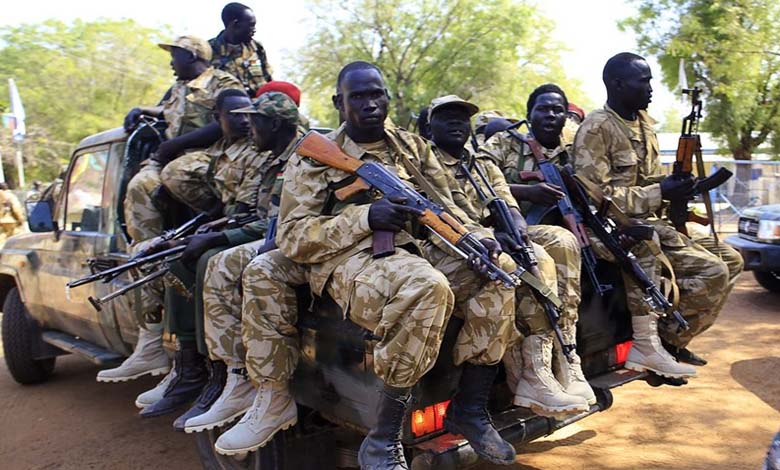A Silent Political Slap: Sudan’s Movement Restrictions Expose the Army’s Deep Crisis

The scene in New York was anything but routine, and Washington’s decision was far from a mere procedural gesture. Finding Abdel Fattah al-Burhan’s delegation confined within a 25-mile radius of Manhattan was the equivalent of a public political slap to Sudan’s army and its authority in Port Sudan. The incident was not just about restricting movement; it was a sharp message that Sudan’s military leaders are no longer welcomed as legitimate members of the international community but are instead regarded as suspicious actors, monitored and constrained as though under siege—even in the heart of New York. It was a silent yet wounding punishment, projecting to the world the image of a ruler who governs with an iron fist at home but cannot take a single step abroad without permission.
-
Al-Burhan’s Delegation in a Closed Circle: Washington’s Silent Message to Sudan’s Leadership
-
Al-Burhan and the Islamist Movement: A Troubled Alliance Selling Off Sudanese Sovereignty
The U.S. decision to limit the Sudanese delegation’s movement did not come by chance. It was the culmination of months of mounting evidence regarding the army’s role in the ongoing civil war. This was not merely a matter of diplomatic protocol but a direct response to the military institution’s responsibility for mass atrocities in Darfur, Kordofan, and Khartoum, documented in international reports citing killings, forced displacement, and widespread abuses against civilians.
By choosing this path, Washington avoided directly announcing new sanctions on al-Burhan or his aides but delivered a clear message: Sudan’s army has lost the trust of the international community, and its leaders are now treated as unwelcome figures. Participation in the UN General Assembly usually offers states a platform to polish their image and conduct multiple bilateral meetings. Yet, stripping Sudan’s delegation of freedom of movement reduced its presence to a mere formality—attendance without substance—highlighting a deliberately engineered isolation.
-
Al-Burhan’s siege brings hunger and slow death
-
Soaring prices and epidemics: Al-Burhan’s corruption traps Sudan
The investigative angle emerges clearly in the context. In the weeks leading up to the Assembly, NGOs published extensive reports on crimes committed in Darfur. UN findings described ethnic cleansing in West Darfur, while Human Rights Watch and Amnesty International reported massacres and forced displacement. These reports strongly influenced U.S. and European decision-makers, paving the way for indirect punitive measures such as the travel restriction.
According to a New York source, the Sudanese mission was notified days in advance that it would be confined to a 25-mile zone around Manhattan. Such restrictions are usually imposed on countries deemed hostile—like Iran, Cuba, or Russia. In Sudan’s case, however, the timing was critical: what should have been a moment of diplomatic outreach became an episode of public humiliation.
-
Al-Burhan Seeks to Contain Potential Crisis over Chemical Weapons Use
-
Al-Burhan Reshapes the Political Landscape: A Power Grab Undermines the Balance of the Juba Agreement
Al-Burhan himself chose not to travel, delegating leadership to former Prime Minister Kamal Idriss. His absence was widely interpreted as an attempt to avoid the embarrassment of being seen confined within narrow limits. What seemed like a procedural decision was in fact a calculated retreat from an anticipated public relations disaster.
Behind the scenes, this step was linked to closed congressional hearings on Sudan, focused on war crimes and human rights violations. While some lawmakers pushed for direct sanctions, the State Department proposed a quieter strategy—tight restrictions during the New York visit—allowing pressure without sparking a diplomatic clash.
-
Al-Burhan’s Government Investigates Use of Chemical Weapons to Evade Responsibility
-
From Al-Bashir to Al-Burhan: The Role of the “Kizan” in Sudan’s War
U.S. intelligence agencies also had concerns, monitoring Sudanese officers’ attempts to engage with American lobbying firms and security contractors. The movement restrictions effectively shut down these efforts, isolating the delegation within official meetings only.
Regionally, allies such as Cairo and Abu Dhabi read the move as a warning sign that Al-Burhan was becoming increasingly isolated and a risky bet. Domestically, the symbolic impact was powerful: for ordinary Sudanese, seeing their leaders constrained abroad reinforced perceptions of weakness and loss of credibility.
-
The Muslim Brotherhood Backs Al-Burhan: Fueling War and State Collapse in Sudan
-
From Al-Bashir to Al-Burhan: The Muslim Brotherhood Continues to Wreck Sudan
Sudanese state-aligned media attempted to downplay the episode, framing it as routine. Yet the unique timing and heavy coverage stripped such claims of credibility.
The most striking implication lies in the precedent set. If such restrictions become a pattern, Sudanese delegations may face systemic marginalization at international forums, pushing Sudan toward pariah status.
Ultimately, Washington imposed a discreet but effective sanction: demonstrating that Sudan’s army has lost legitimacy both regionally and globally. The 25-mile New York limit became a mirror reflecting a wider constraint—the confinement of an entire military leadership trapped in its own crisis, incapable of projecting credibility beyond its borders.
-
Precision Strikes Shake Islamist Camps in Port Sudan: Mass Escape and Suspicious Silence from al-Burhan
-
Mysterious Airstrike in Port Sudan Reveals Involvement of Foreign Experts and Iranian Arms… Silence from al-Burhan and the Islamic Movement Raises Questions












